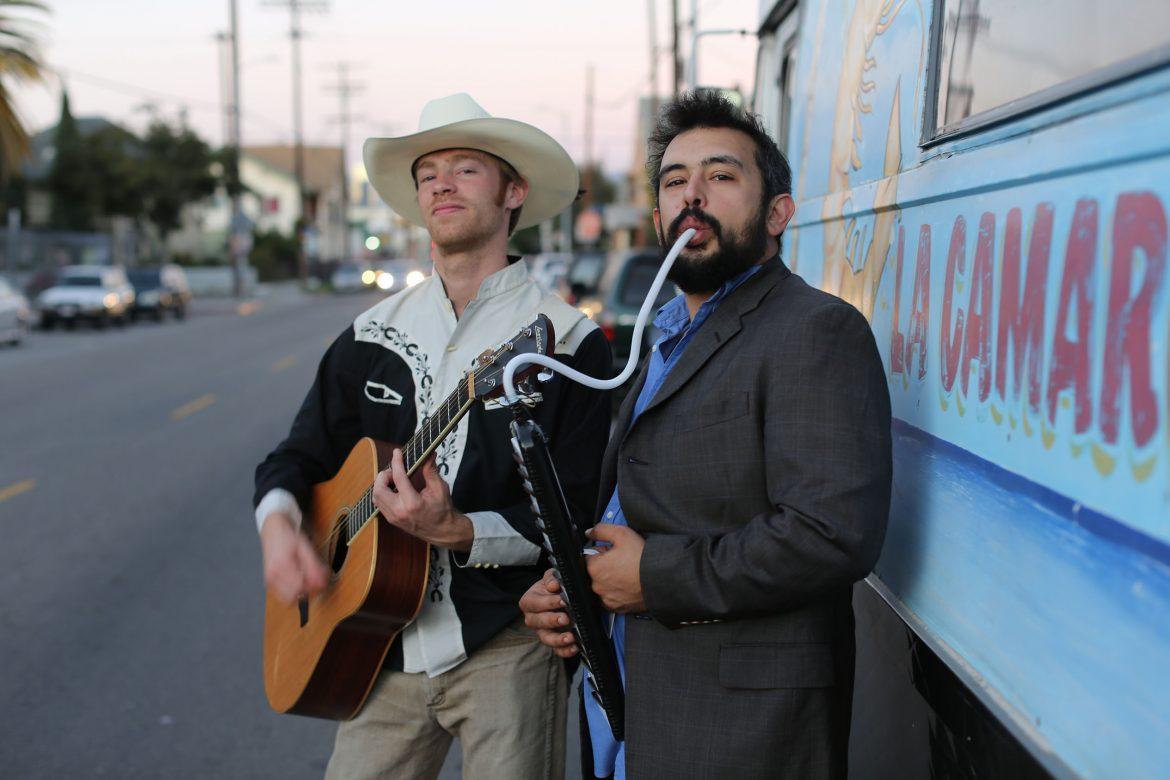Our generation is well aware of the term “dank” used to express the liking of something. In this case, the term dank is not part of a meme page or anything related to marijuana strains. In this case, The Dank, is the name of an L.A. music group.
The Dank’s first full length album contains nine songs demonstrating their ability to combine all sorts of influences from different genres. From banda and cumbia, to blues and rock ‘n’ roll, this is a true “dank tex-mexperience” album for the listener.
The group is a band from Los Angeles comprised of two musicians. In 2011 both David Monnich (voice, guitar) and Jimi Morales (voice, keyboard) met at Williams College in the state of Massachussetts—even though they both came from the state of Texas. It was there they started to having their own jam sessions and perform at open-mic nights and local bars. By that time, they were already calling themselves “The Dank.”
After a few years, Monnich and Morales moved to Los Angeles and kept making music. The result has been an EP and their newest full-length album with the help of producer Eugene Toale, who has worked with other local bands like Las Cafeteras and Viento Callejero.
“Having worked with so many bands Eugene helped bringing so many talented musicians to help record with us.” Monnich said.
From start to finish Eugene’s work is notable with The Dank. “Lupita,” the opening track of the album, begins with a steady drum beat mostly heard in norteña songs from “Los Tigres del Norte” accompanied by a playful melody from an accordion. The song tells the story of Lupita’s husband traveling from San Francisco to Los Angeles with a batch of weed on him.
The story ends in this way:
“Llegando a Los Ángeles (Arriving to LA)
Temblaba por toda mi piel (my skin trembled)
Una patrulla me detuvo y yo le dispare (A cop stopped me and I shot him).
Esta vida es muy dura y repleta de traición (This life is too cruel and full of betrayal).
Mi familia no tiene dinero (My family has no money).
Que Dios me salve por favor (God, please save me).”
The lyrics are sung with the same energy as a classic norteña song would be in Mexican culture. The seriousness of the lyrics is disguised by the upbeat tone of the song. Similarly, the outro of the album tells the story of Joaquin Phoenix which contrasts “Lupita” by telling the story of a man from a small Texas town.
Using the melody from a piano and organ instead of an accordion puts the listener in a different yet relating setting from their American-oriented influences in the blues and rock ‘n’ roll genres. The intro and outro song connects the similar cultural aspects of the Mexican-American world. People with sombreros sing and dance along “Lupita” while those with cowboy hats sing and dance along “Joaquin Phoenix.”
Monnich and Morales’s native tongue is English but they both sing in Spanish frequently throughout the album. Having traveled and lived in Mexico they surrounded themselves with Mexican culture to help shape their sound and the stories they wanted to tell. “It’s historical fiction,” Morales said, when asked about the source of inspiration for their songs.
He added that “The Trimmer” came from wondering what job would an immigrant take if he were stuck in Los Angeles wanting to go back to Texas. On the other hand, Monnich experienced a night of heavy drinking in which he couldn’t get back home. A nun, whom he did not know, took him to a safer location on Skid Row after seeing how intoxicated he was. This served as the basis for creating “Sister Dorothy.” The themes they touch within their lyrics may raise awareness but the ultimate reaction they’re looking for in their audience is joy.
Although the group’s name can be seen as absurd, the talent of these musicians must not be overlooked. In songs like “Dank Time” and instrumental fragments throughout other songs. The group showcases their abilities with musical instruments to a full extent. The balance between seriousness and playfulness makes the album a debut worth listening to from start to finish.
Currently, the band is focused on promoting their album playing on local venues in the LA area. The album is readily available on Souncloud, Spotify, and their social media accounts.
Be on the lookout for more Dank material.












